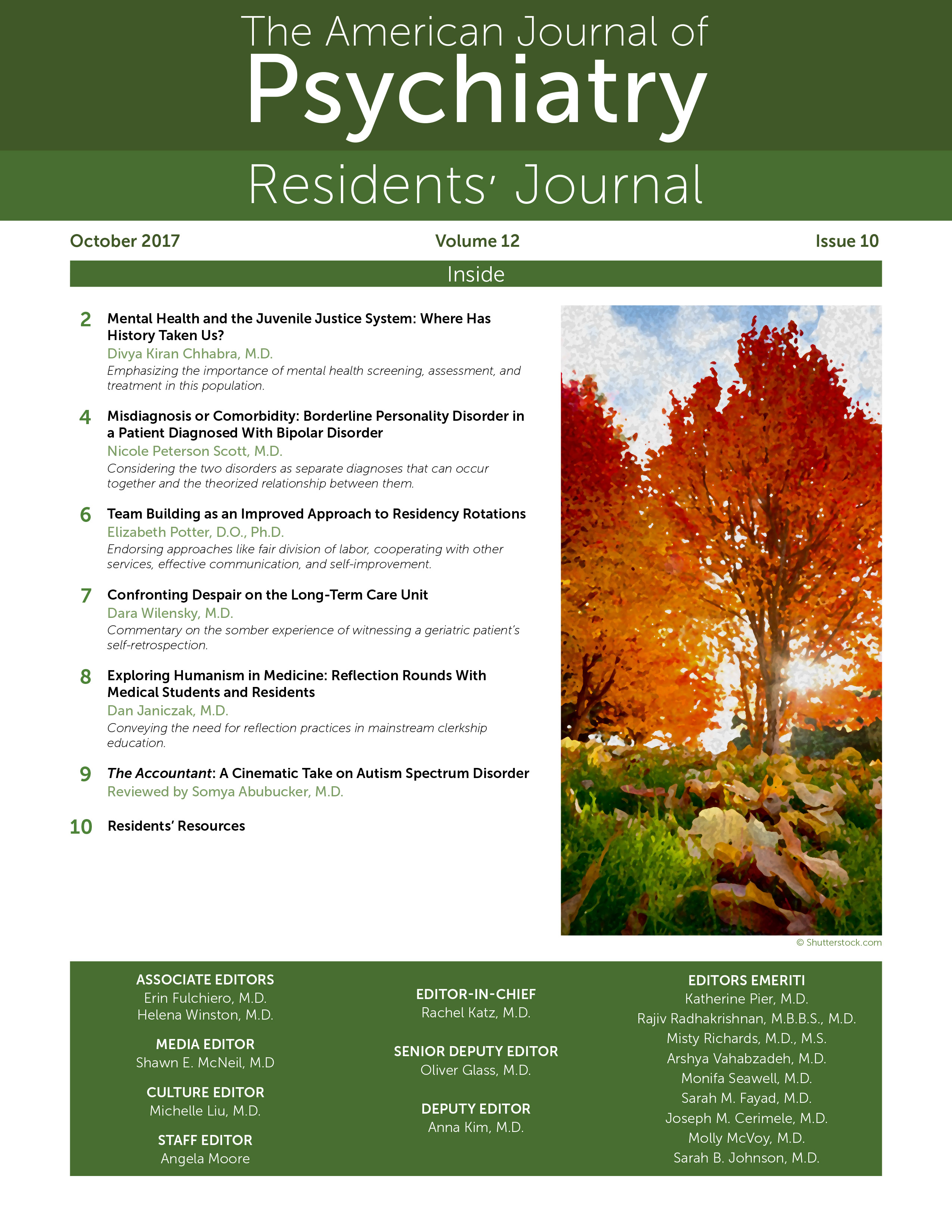Exploring Humanism in Medicine: Reflection Rounds With Medical Students and Residents
Each new rotation brings a variety of change in the educational experience of a medical student or resident. We see a substantially different team compared to the previous rotation, which includes new nurses, staff, and teaching physicians; moreover, there are new expectations and a new field of study with a unique patient population and standards of care. Fast-paced weeks during training require learners to endure a steep learning curve with limited time to master as much knowledge as one can, while reconciling the reality that evaluations are imminent and performance matters. We live in a time where corporate acquisition of hospital systems is the norm, and patient satisfaction scores are paramount. Students and residents learn that patient-centered care is important, often being reminded that compassion and altruism are a priority. However, in personal encounters with patients and teaching physicians, development of these values is less emphasized and supported than the mastery of medical knowledge (1). Some training programs have brought attention to this discrepancy and are beginning to cite these values as requirements to clinical training.
In response to this, in 2014 the George Washington University Institute for Spirituality and Health, in partnership with the John Templeton Foundation, awarded a number of medical schools across the United States with a grant that aided the schools in implementing mentored reflective practice into mainstream clerkship education. Students regularly met for “reflection rounds” on clinical encounters offering an opportunity to examine personal values, beliefs, a sense of self, and the transformation of these aspects over the course of their education.
As a first-year psychiatry resident, psychiatry rotations were the ideal venue to begin practicing a series of reflection rounds with medical students at Hennepin County Medical Center in Minneapolis and Regions Hospital in St. Paul. Meeting one time per week during the course of a rotation, we conversed about the patient-physician connection, as well as personal and professional development. Reflection rounds enable students and residents to find what gives us meaning in our clinical experiences and refine the image in our minds of the physician we want to become. It is a time in which the group can reflect on expectations and hopes, gathering support from co-residents and other students in navigating an often unfamiliar environment. Such a climate of reflection has been shown to foster an environment of trust, collaboration, and attention to human needs (2). In time, conversation and listening set the stage for each person to take away elements that can aid in individual growth and a sense of solidarity. Further efforts may include taking this practice and examining the impact it has on markers of physician burnout, including emotional exhaustion, depersonalization (i.e., cynicism), and low sense of personal accomplishment.
1. : Empathy decline and its reasons: A systematic review of studies with medical students and residents. Acad Med 2011; 86(8):996–1009 Crossref, Google Scholar
2. : Teaching the human dimensions of care in clinical settings. JAMA 2001; 286(9):1067 Crossref, Google Scholar



